A managed service provider (MSP) is an outsourced third-party organization that assumes management and responsibility for a predetermined set of day-to-day IT services to its users. These services include application, network, and security and cloud management. An MSP may provide its services in combination with the services of other IT providers.
This article will compare the top MSPs, cover the features of MSPs, explore the benefits of using an MSP and discuss how to choose a provider.
Here are our top choices for IT MSPs for 2023:
- Accenture: Best for optimization of IT operations and infrastructure for large enterprises and mid-sized companies
- Capgemini: Best for comprehensive and customized solutions for the modernization of IT infrastructure
- Deloitte: Best for large-scale enterprises in industries with challenging regulatory environments
- Cognizant: Best for redesigning and reinventing business and operating models
- Atos: Best for AI, IoT, Industry 4.0, cognitive computing, cybersecurity, and quantum ML services
- Rackspace: Best for e-commerce, database management, business intelligence, and professional managed services domains
- CDW Corporation: Best comprehensive solutions for business, education, and government institutions
- HCL Technologies: Best for digital transformation and everything-as-a-service models
- IBM: Best for a combination of expert workforce and advanced solutions
- DXC Technology: Best for cloud, analytics, and mobility for innovation and business transformation
- Infosys: Best for AI and digital agility
- TruAdvantage: Best combination of cloud, security, and IT strategy for small and mid-sized businesses
- Wipro: Best for emerging and advanced digital technologies use cases
- Tata Consultancy Services: Best for advanced analytics, customer intelligence, and insights for mid-sized to large enterprises
Table of Contents
14 top IT managed services providers comparison
As all these MSPs have a diverse set of services, we compared them in terms of their scope and their value propositions.
| MSP | Scope | Value Proposition |
|---|---|---|
| Accenture | Consulting, IT operations cloud industry solutions, transformation, platforms, engineering, and security | Systems for data integration, IoT framework development, and AI integration, etc. |
| Capgemini | AI, digital engineering, digital innovation, and transformation | Cloud strategy, workloads assessments and migration, cloud-native applications |
| Deloitte | Managed service advisory, digital, information management, enterprise resource planning, systems integration | Services handling complex compliance and regulatory environments |
| Cognizant | Cloud managed services | Consulting expertise and IT services |
| Atos | Cloud services, cybersecurity, AI, Industry 4.0, cognitive computing, data analytics, quantum ML | Consulting services and management of hybrid cloud and security |
| Rackspace | Professional managed services, BI, database management | Managed cloud services such as cloud connectivity, public cloud, private cloud, hybrid cloud, multi-cloud, etc. |
| CDW | DevOps, cybersecurity, digital workspace solutions, digital transformation, data center and network infrastructure, etc. | IT migration, integration, and management |
| HCL | Digital transformation, cloud technologies, everything-as-a-service | Engineering and R&D Services (ERS), IT and Business Services (ITBS), and Products and Platforms (P&P) |
| IBM | Cloud, AI services, consulting, security, IT infrastructure and research | Industry-leading consulting, professional and IT services |
| DXC | Analytics, IoT, applications, cloud, consulting, blockchain | Managed services in analytics, engineering, applications, cloud, consulting, insurance BPaaS |
| Infosys | Digital services, consulting, AI | Innovation hubs enabling businesses to explore digital technologies |
| TruAdvantage | Managed cloud, security, VoIP, Backup and business continuity, mobility and IT strategy | Automation tools and staff to offer fast-response helpdesk support, proactive IT management and strategic guidance |
| Wipro | Data, analytics and AI, consulting, applications, infrastructure services, digital operations and platforms | HOLMES, an AI and ML-powered platform to accelerate business processes |
| Tata | Consulting-led, AI and ML-powered company, integrated portfolio of technology, business and engineering services | Customer Intelligence and Insights (CI&I) software for advanced analytics and IoT integration in banking, communications, retail, etc. |
Accenture: Best for optimization of IT operations and infrastructure for large enterprises and mid-sized companies

Accenture is a leading MSP that provides consulting services alongside clearly defined digital integration capabilities. Accenture offers systems for data integration, IoT framework development, and AI integration, among other emerging technologies.
Its numerous services include business strategy, AI, metaverse, technology consulting and innovation, and automation. Accenture’s managed services for Internet of Things (IoT) and edge devices cater to the heterogeneous components of IoT and edge ecosystems. It also offers services in cloud transformation, engineering, and security.
Pricing
Contact Accenture for pricing information that is aligned with your use case.
Features
- Managed compute services to deliver agility and value to customers and enable them to run their IT infrastructure from the cloud to the edge and on-premises.
- Managed network services to offer reliability, security, and flexibility to customers.
- Managed security for improved risk posture.
- Managed database infrastructure to secure databases on-premises and in multi-cloud and hybrid cloud environments.
Pros
- Creates data-enabled operating models to adapt to users’ businesses and deliver value.
- Provides a powerful and expansive ecosystem to drive innovation.
- Serves global clients from a wide range of industries.
- Managed security capabilities like application security, cloud security, digital identity, security risk, and detection and response.
Cons
- Can be expensive, especially for small businesses.
- Accenture solutions are designed to be highly integrable with their ecosystem, making it a challenge for clients to transition to non-Accenture solutions when they need to.
Capgemini: Best for comprehensive and customized solutions for the modernization of IT infrastructure

Capgemini leverages technology to empower business transformation in organizations globally. Capgemini commands expertise in fields like data, AI, cloud, connectivity, digital engineering, and software and platforms to meet the needs of businesses in design, strategy, operations, and more. It also helps organizations incorporate the public cloud in their hybrid cloud strategies through its enterprise-grade managed services.
Pricing
Pricing information has not been publicly listed. Contact Capgemini for pricing information.
Features
- Capgemini’s Intelligent Industry provides 5G, edge computing, IoT, and Industry 4.0 services in diverse sectors like healthcare and manufacturing.
- Perform AI offers organizations the ability to leverage the power of AI and data at scale to amplify their business outcomes.
- Capgemini’s digital services help organizations attain sustainable growth through services like GDPR readiness, data management, and digital engineering and manufacturing services.
Pros
- Capgemini boosts IT functionality by allowing in-house IT to prioritize more strategic programs.
- Cloud agnostic cloud solutions to enable users to deploy their services on supported cloud providers.
- Enterprise IT solutions help businesses integrate public cloud services.
Cons
- Weaker support for the Middle East and Africa compared to other regions.
- Customers report that Capgemini cost is higher than market.
Deloitte: Best for large-scale enterprises in industries with challenging regulatory environments

Deloitte is an industry-leading provider of consulting, tax, audit assurance, and risk advisory services to thousands of companies.
Deloitte helps enterprises deal with the rising complexity of today’s technology landscape, and improve application performance and business results through its application management specialists. The provider flexibly empowers enterprises to tailor their application management services to their business and IT goals.
Deloitte offers services such as information management, enterprise resource planning, and systems integration.
Pricing
Contact Deloitte for pricing information as they have not publicly listed it.
Features
- Managed service advisory function to help clients choose the ideal managed service model.
- Can handle large enterprise clients in industries with challenging regulatory environments.
- Sophisticated managed security services, exemplified by its evolving partnership with Palo Alto Networks to provide integrated, end-to-end Zero Trust cybersecurity solutions to their mutual customers.
Pros
- Helps users re-engineer their IT processes to incorporate automation in their managed services.
- Provides a wide variety of consulting services.
- Easy-to-use plug-and-play solutions.
Con
- Deals almost exclusively with large-scale enterprises.
Cognizant: Best for redesigning and reinventing business and operating models

Cognizant partners with organizations to empower them to successfully transform their digital infrastructure and implement their cloud environments. The provider offers the Cloud Operate service, which is an end-to-end hybrid cloud offering that leverages AI to serve cloud delivery models like platform-as-a-service, infrastructure-as-a-service (IaaS), functions-as-a-service and containers, among others.
Cognizant’s offerings include provisioning and orchestration, monitoring and notification, security, governance, application performance management, and more across the cloud management spectrum.
Pricing
Reach out to Cognizant to discuss pricing information.
Features
- Cloud 360 Integrated Cloud Management Platform offers intelligent automation with a roadmap to no-ops.
- Cloud accelerators and assets to quicken enterprise cloud adoption journeys.
- AI and machine learning (ML)-based automation through Cognizant’s Analytics and Context-Driven Automated Service Operations.
Pros
- Delivers cloud management options to enable its users to leverage the capabilities of their clouds.
- Simplifies cloud usage for hybrid cloud users.
Con
- Even though it also caters to smaller businesses, Cognizant typically focuses on large-scale enterprises.
Atos: Best for AI, IoT, Industry 4.0, cognitive computing, cybersecurity, and quantum ML services

Atos is not only a leader in secure and decarbonized digital but is also present in the cloud and digital workspaces. The provider offers highly rated managed services alongside top-class computing power and quantum machine learning.
Atos has a keen focus on cloud services, cybersecurity, and AI and places an emphasis on Industry 4.0, cognitive computing, and data analytics as well.
Pricing
Contact Atos for their pricing plans.
Features
- Quantum ML solutions that help its users prepare for and leverage the technology without physically having quantum machines.
- Atos OneCloud to empower users to operate hybrid and multi-technology application platforms.
- Managed security service covering industrial, IoT security, digital workplace, and hybrid cloud security, trusted digital identities, data protection and governance, and advanced detection and response.
Pros
- Atos managed security services utilize AI for threat resolution, root cause analysis, and preventative action.
- Delivers certified Computer Security Incident Response teams 24/7/365 alongside a thorough knowledge base.
- Flexible managed security service
Con
- Some customers have highlighted that Atos’ response time has room for improvement.
Rackspace: Best for e-commerce, database management, business intelligence, and professional managed services domains
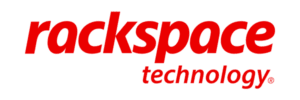
Rackspace offers enterprises professional managed services in industries such as finance and healthcare, that can ease and accelerate their digital transformation, with expertise traversing applications, clouds, security, and data.
Founded in 1998, Rackspace boasts of over 3,000 cloud engineers across Windows, Linux, and VMware. Rackspace approaches the cloud using a technology-stack-centric view as opposed to contrast between public and private cloud infrastructures. It offers a flexible strategy to workload placements across clouds.
Pricing
Contact Rackspace as their pricing information is not public.
Features
- Rackspace Fabric provides a unified multi-cloud management platform that helps simplify the management of multiple public clouds.
- Rackspace Elastic Engineering allows customers to work with on-demand experts to provide cloud-first solutions like cloud migration, application, and DevOps services.
- Cloud-native security involving 24/7/365 monitoring and response and comprehensive security visibility.
Pros
- Rackspace offers its customers modular, customizable, and flexible cloud services.
- Pay-as-you-go pricing makes Rackspace a great fit for unpredictable traffic.
Cons
- Customer support has room for improvement.
- Rackspace expects its customers to have advanced technical knowledge, which may alienate users without in-house IT staff.
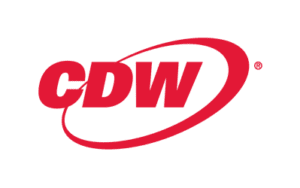
CDW Corporation: Best comprehensive solutions for business, education, and government institutions
CDW combines technology, expertise, experience, industry-leading partnerships, and end-to-end support to solve customers’ business challenges. CDW helps organizations manage their most complex applications and infrastructure through secure and holistic solutions. These solutions cover areas such as DevOps, cybersecurity, digital workspace solutions, digital transformation, and data center and network infrastructure, among others.
Pricing
Contact CDW for pricing of the managed service in consideration.
Features
- CDW focuses on migration, integration, and management of cloud services. Their custom services include IaaS, backup-as-a-service, disaster recovery-as-a-service (DRaaS), and managed hosting.
- Colocation center services including backup and disaster recovery, dense and powerful racks, and scalable colocation services.
- Connectivity services such as managed networks, Low Latency Transport, custom fiber, and global WAN, SD-WAN, and IP services.
Pros
- A wide and effective selection of managed services.
- Customer-centric MSP focused on delivering value to customers.
- Great customer service and support.
Con
- Multiple users highlight that CDW can do with improved communication or better follow-ups for their customers.
HCL Technologies: Best for digital transformation and everything-as-a-service models

HCL Technologies is a next-generation MSP that empowers enterprises to reconceptualize their businesses for the digital age.
HCL Technologies offers enterprises three categories of an integrated portfolio of products and services:
- Engineering and R&D Services (ERS)
- IT and Business Services (ITBS)
- Products and Platforms (P&P)
These three categories are supported by HCL’s Mode 1-2-3 strategy, which is the center of HCL’s Digital Enterprise 4.0 focus as it aims to provide holistic services to ensure clients are not only covered today but also future-ready.
Pricing
Contact HCL for guidance on pricing for your use case.
Features
- Digital Foundation is a modernized infrastructure stack created around hybrid cloud, digital cloud and software-defined networks.
- Digital Business combines HCL’s consulting and application services to facilitate digital transformation.
- Digital Operations facilitates modernization and optimizes the efficiency of enterprise operations.
- ERS provides engineering solutions and services across platform engineering and product development.
Pros
- Strong service-level support for customers through HCL’s use of a cloud custodian model for its cloud services.
- Its software-as-a-service (SaaS) services help businesses replace existing on-premise applications.
- Customers enjoy a vendor with a global presence, vast industry expertise, and a wide variety of services.
Cons
- The cost, size, and complexity of the scope of HCL may make HCL less feasible for small and medium-sized businesses.
- Users may experience vendor lock-in which makes it a challenge when they seek to switch providers.
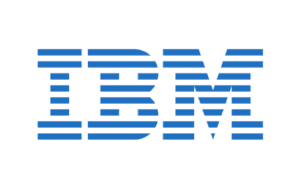
IBM: Best for a combination of expert workforce and advanced solutions
With a global presence and household name, IBM provides many managed services in the market today, including supporting other MSPs either directly or through an MSP model. IBM provides innovation and business transformation solutions through IBM Cloud, IBM Watson for its AI services, IBM Consulting, IBM Security, IT infrastructure, and IBM Research, among others.
Pricing
Due to the vast offerings of managed services by IBM, it’s necessary to contact them for pricing information.
Features
- Quantum-as-a-service through the cloud to offer researchers, enterprises, and developers quantum computing frameworks without them having to be quantum experts.
- Managed security services such as managed cybersecurity involving threat management, MDR, cloud security, and managed network security, which includes Secure Access Service Edge, managed firewall services, and intrusion detection and prevention.
Pros
- IBM is well known for its expertise and highly skilled workforce, which it extends to customers to help them manage their IT needs.
- IBM offers industry-specific solutions which enables them to support businesses that need specialized support and expertise.
- Advanced solutions and technologies borne of a culture of investment in research and development.
Cons
- With such a vast catalog of services, clients may end up being overwhelmed by IBM’s offerings and determining which are the best fit for their use cases.
- Potential vendor lock-in.
DXC Technology: Best for cloud, analytics, and mobility for innovation and business transformation

DXC Technology is an IT services company that leverages the power of technology to better the future of its whole ecosystem. DXC empowers global companies to not only run mission-critical systems but also modernize their IT infrastructure, optimize data architectures, and ensure scalability and security across cloud architectures. DXC offers services across analytics and engineering, applications, cloud, consulting, and insurance business processes-as-a-service (BPaaS), among others.
Pricing
Contact DXC for current pricing information.
Features
- Cloud Right is DXC Technology’s distinguishing approach to cloud transformation services for accelerating business results from IT modernization.
- Uses a data-driven intelligent automation platform named DXC Platform X to expedite users’ journeys to self-healing IT across their infrastructure.
- Insurance BPaaS provides a mix of people and processes to execute the full spectrum of insurance services.
Pros
- Strong and strategic partnerships with leading technology vendors like Microsoft, VMware, and AWS empower clients to leverage the latest technologies and solutions.
- Industry expertise to ensure clients benefit from their in-depth understanding of industry-specific requirements and challenges.
- Has a strong global presence.
Cons
- Integration challenges may arise out of the numerous mergers and acquisitions that have contributed to DXC’s growth.
- Some customers report being dissatisfied with factors such as poor communication and slow response time with DXC’s services.
Infosys: Best for AI and digital agility
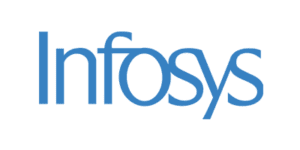
Infosys stands as a global leader in next-generation digital services and consulting. The company provides managed IT services for operational support alongside strategic services to enterprises.
Infosys uses an AI-powered core to enable enterprises to prioritize the execution of change. Infosys also offers agile digital at scale to improve performance and customer satisfaction. It has a scalable delivery framework that fosters innovation and helps enterprises mitigate risks and align with their ecosystems.
Pricing
Infosys invites prospective customers to engage their experts to discuss services and pricing.
Features
- Infosys has multiple innovation hubs that enable businesses to explore various digital technologies like AI and ML, IoT, and more.
- Infosys delivers its digital operating models to help enterprises constantly reinvent their operating models through 5 offerings: Design+, Proximity+, Agile+, Automation+, and Learning+.
Pros
- Enhanced user experience and cost optimization through automation and proactive monitoring offered by Infosys Managed Services.
- One-price multi-product and services for greater customer ROI.
Cons
- Smaller organizations seeking a more flexible and nimble MSP may find an MSP of this scale to be slow and less responsive.
- Potential for vendor lock-in.
TruAdvantage: Best combination of cloud, security, and IT strategy for small and mid-sized businesses
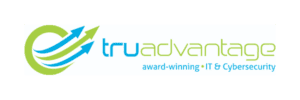
TruAdvantage managed IT services are an in-depth collection of turnkey IT management and support solutions for small to mid-sized enterprises.
TotalCARE is TruAdvantage’s managed IT suite that creates an enterprise-grade IT department in infrastructure, strategy, and support. It uses automation tools and staff to offer fast-response help desk support, proactive IT management, and strategic guidance.
Pricing
Reach out to TruAdvantage to explore pricing.
Features
- TruAdvantage’s TotalPROTECT solution offers backup, disaster recovery, and business continuity by securing users from downtime and data loss.
- Managed cybersecurity through Secure360 to provide security levels of policy implementation, people training, and advanced technology.
- TotalCONNECT provides VoIP services for small and mid-sized businesses without upfront investment.
Pros
- Proactive, real-time, round-the-clock support.
- Supports small and medium businesses.
- Robust cybersecurity solutions.
Cons
- Potential vendor lock-in.
- For some organizations, it may be cheaper to hire in-house IT as opposed to outsourcing to TruAdvantage.
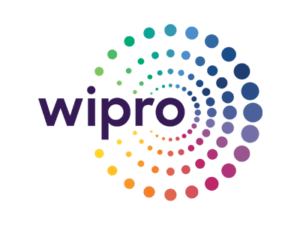
Wipro: Best for emerging and advanced digital technologies use cases
Wipro is an IT, business process, and consulting services company that harnesses the power of hyper-automation, cognitive computing, cloud, analytics, robotics, and emerging technologies to empower its customers to adapt to and succeed in the digital world. It provides services in data, analytics and AI, consulting, applications, infrastructure services, and digital operations and platforms.
Pricing
Reach out to Wipro for up-to-date pricing information.
Features
- Wipro HOLMES, an AI and ML-powered platform, leverages cognitive services that use automation to accelerate business processes.
- AI-first framework for data monetization through robust processes, next-generation technologies and leading-edge capabilities.
- Blockchain innovation to drive transformation and shape blockchain ecosystems.
Pros
- A focus on innovation and research ensures Wipro delivers relevant solutions to its clients.
- Wipro provides tailor-made solutions to its customers thanks to its deep expertise in multiple industries.
Con
- Automation capabilities of its network-managed services could be improved.
Tata Consultancy Services: Best for advanced analytics, customer intelligence, and insights for mid-sized to large enterprises

Tata Consultancy Services (TCS) is a consulting-led, AI and ML-powered company with an integrated portfolio of technology, business, and engineering services. TCS utilizes a mix of business intelligence and tech expertise to enact change and deliver optimized results.
TCS offers managed services for cybersecurity, contact center, and unified communications. The company empowers its clients with technical support (IT operations) to ensure the customer experience is improved and operations run more efficiently.
Pricing
Contact Tata for insight into pricing as information is not publicly listed.
Features
- Customer Intelligence and Insights (CI&I) software to provide advanced analytics and IoT integration in banking, communications, retail, and more.
- Managed services include cloud security, security device management, cyber crisis management, intelligence, and threat advisory.
- Unified communications managed services include help desk management, patching and upgrades, reporting and governance, service level agreement (SLA) management, and more.
Pros
- Wide portfolio of service offerings and industry expertise.
- Proven track record of successful projects.
- Heavy focus on research and development to drive its services.
Cons
- Its offshore delivery models may suffer time-zone challenges and communication issues, which may impact user satisfaction.
- A very large customer base may make it difficult to deliver the customization of services that individual clients may require.
Key features of IT managed services providers
Although the specific offerings of each MSP can vary greatly, there are some key features that nearly all of them share. These include remote monitoring, help desk, security services, analytics, and management of networks, hardware, and software.
Remote monitoring and management (RMM)
MSPs use advanced tools and software to monitor clients’ IT systems, networks, and devices remotely. This helps them proactively identify and resolve issues before they escalate into bigger problems.
Help desk support
MSPs offer a central point of contact for end users to report issues, ask questions, and receive assistance with their IT-related problems. This support is often provided through various channels, such as phone, email, and chat.
Security services
Due to the crucial and sensitive nature of cybersecurity today, IT managed service providers are increasingly offering a range of security services, such as firewall management, intrusion detection, vulnerability assessments, and regular security updates to ensure clients’ data and systems are protected from threats.
Reporting and analytics
IT managed service providers typically provide regular reports on the performance of their clients’ IT systems, helping enterprises make informed decisions about their technology investments and pinpoint areas for improvement.
Network management
MSPs help businesses maintain and optimize their networks by monitoring performance, ensuring network security, and addressing any connectivity issues that may arise.
Hardware and software management
Some MSPs may handle the procurement, installation, and management of hardware and software for clients, ensuring they have the right tools in place to support their business needs.
Featured Managed Service Provider (MSP) Software
Benefits of IT managed service providers
Since MSPs generally provide many of the same services as an internal IT department, you may wonder whether they’re the right choice for your business. Using an MSP does provide numerous benefits either replacing or in many cases supplementing internal IT, including 24/7 access to expertise and support, additional security and maintenance assistance, and scalability, all of which can help you keep your focus on your core business objectives.
Access to expertise
MSPs have a team of IT professionals with a wide range of skills and knowledge, allowing businesses to access specialized expertise that might be difficult or expensive to maintain in-house.
Better focus on core business
By outsourcing IT management, businesses can focus on their core competencies and objectives, without the distraction of managing complex IT infrastructure.
Scalability
As a business grows, its IT needs change. MSPs can easily scale services to accommodate this growth, ensuring that resources are always available to meet current and future demands.
24/7 support
MSPs offer round-the-clock support, ensuring that any issues are addressed quickly and efficiently, minimizing downtime and keeping businesses operational.
Enhanced security
MSPs are equipped to manage and monitor the security of IT systems, with some MSPs specializing in enterprise security. They help businesses stay up-to-date on security threats and provide protection against potential cyberattacks.
Proactive maintenance
MSPs perform regular maintenance on systems and networks, which can help prevent costly downtime and improve overall performance. By identifying and addressing issues before they become critical, businesses can minimize the risk of IT failures.
How do I choose the best IT managed services provider for my business?
Your choice of MSP for your business is a critical decision that affects the overall success and efficiency of your operations. To make an informed decision, you’ll need to consider and weigh a variety of factors, from your own business’ capabilities and needs, to scalability, to security and compliance.
- Define your needs: First of all, you should clearly identify your organization’s IT requirements, short-term and long-term goals, and the level of support you expect from an MSP.
- Experience and expertise: Look for an MSP with a proven track record, strong expertise in your industry, and experience working with organizations of a similar size and complexity as yours.
- Range of services: Make sure the MSP offers a wide range of services that cover your needs, such as network management, security, data backup and recovery, cloud services, and hardware and software support.
- Scalability: Choose an MSP that can scale their services as your business grows, offering flexibility to adapt to your changing needs.
- Pricing and contract terms: Compare pricing models, contract terms, and any additional fees. Make sure you understand what is included in the MSP’s services and what could lead to additional costs.
- SLAs: Understand the MSP’s SLAs, response times, and support availability. Ensure these align with your expectations and requirements.
- Cultural fit: Consider whether the MSP’s company culture aligns with yours. A good cultural fit can lead to a more productive and harmonious working relationship.
- Certifications and partnerships: Check if the MSP holds industry-standard certifications and partnerships with leading technology vendors. This indicates a commitment to staying current with technology and best practices.
- Security and compliance: Finally—and critically—make sure the MSP is well-versed in security best practices and can help your business meet compliance requirements specific to your industry.
Methodology
We considered the top IT managed services providers as listed by reputable review sites such as Gartner Peer Insights and G2 in addition to scouring blog posts, forums, and official vendor documentation and websites. We then shortlisted them based on how they stand out as MSPs in terms of their cloud and IT services in general as well as customer satisfaction scores.
Bottom line: Choosing an MSP for your business
Although it can feel overwhelming sifting through the variety of MSP offerings on the market, using this guide can help you narrow down your options by zeroing in on companies that have strong reputations with organizations in your industry, area, and size.
Once you have a shortlist of about four top contenders, you can start having more in-depth conversations with their sales departments to discuss pricing for the specific offerings you require. These conversations will also help you get an understanding of how it will be to work with that MSP long-term, so you can confidently commit to a mutually beneficial relationship.
Looking for more specific offerings? Be sure to explore our guides to the best enterprise Wi-Fi solutions, network security companies, and edge computing companies.




